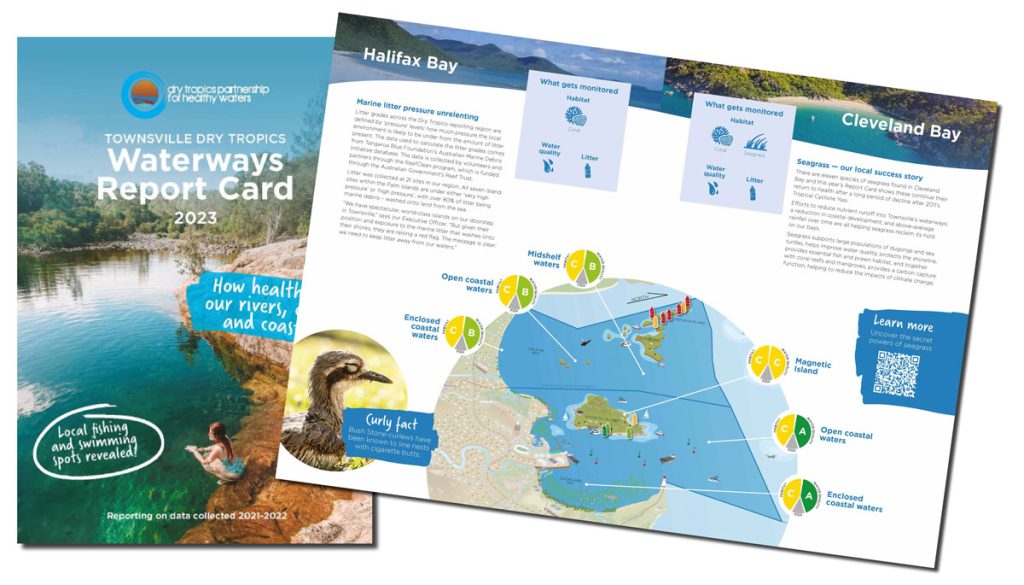Insights from the 2023 Waterways Report Card: Habitat

1. There has been less than 1% waterway habitat loss on land
On land, waterway habitat is graded in the Report Card by measuring changes to the extents of riparian vegetation, wetland vegetation, mangroves, and saltmarsh — the vegetation along our watercourses.
This year’s Report shows that where these kinds of vegetation are measured in our region, less than 1% of habitat has been lost since 2013.
“It feels like many Townsvillians are only just discovering the incredible power and importance of mangroves,” says our Executive Officer, Kara-Mae Coulter-Atkins.
“Their ability to sequester carbon, stabilise shorelines, and shelter rich beds of biodiversity is extraordinary. Mangroves are also our town’s first line of defence, forming natural barriers against coastal erosion and storm surges by stabilising sediments and reducing wave energy.”
2. In Cleveland and Halifax Bays, habitat grades remain ‘moderate’
In both Cleveland and Halifax Bays, habitat grades show both improvement and decline, resulting in a ‘moderate’ grade overall. Seagrass in Cleveland Bay has almost recovered to pre-flood (2019) conditions, but coral has fluctuated between ‘moderate’ and ‘poor’ for the past four years.
Coral habitat in Halifax Bay has received its lowest grade in the past four years and there remains a significant amount of macroalgae recorded at four of six data collection sites: Pandora Reef North and South, and Havannah Island North and South.
3. Offshore marine areas show baby coral bouncing back
The Offshore Marine Zone within our Report Card represents data collected by the Australian Institute of Marine Science (AIMS) Long-term Monitoring Program at the following reefs: Chicken, Davies, Dip, Helix, John Brewer, Kelso, Knife, Myrmidon, and Rib.
Overall, this Zone received its highest habitat grade in the past four reporting periods. Juvenile density was graded as ‘very good’ at 8 of 9 reefs surveyed, indicating that baby coral is recovering against previous reporting levels. All coral reefs in the Zone received an overall habitat grade of ‘moderate’ or ‘good’.
“So many of our Partners work every day to improve the health of our local reefs and these juvenile coral results are heartening,” says Kara-Mae Coulter-Atkins, Executive Officer, Dry Tropics Partnership for Healthy Waters.
“All partners of the Dry Tropics Partnership for Healthy Waters are conscious of the ‘creek to coral’ flow-on effects of waterways pollution, and everything we can collectively do to improve the health of our catchments will give young corals — and all other life in our marine environments — a fighting chance against complex and mounting pressures.”
Download the 2023 Townsville Dry Tropics Waterways Report Card here.
Access the Technical Report behind the Report Card here.





